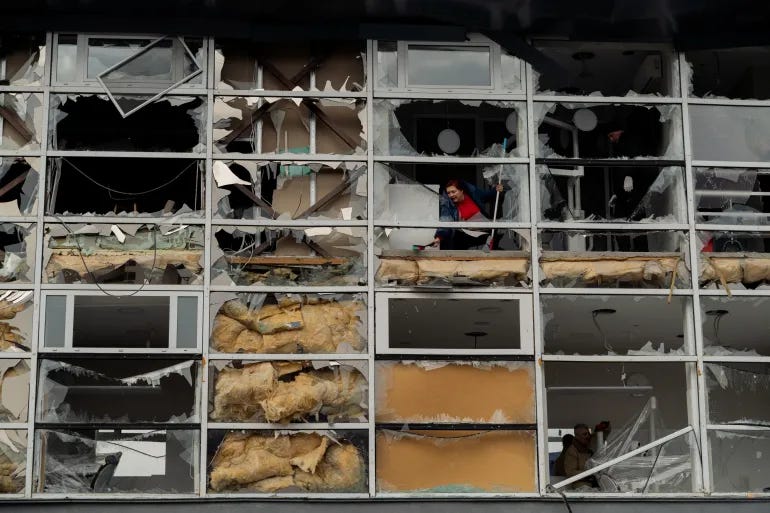Russia-Ukraine War: Key Developments on Day 1,060
Major Events from the Ongoing Conflict
On Sunday, January 19, the conflict between Russia and Ukraine entered its 1,060th day, marked by continued violence, strategic military actions, and diplomatic maneuvers. Here are the latest developments:
Escalation in Fighting
A Russian missile attack on Kyiv resulted in the deaths of three civilians—a 43-year-old man, a 25-year-old man, and a 41-year-old woman—while injuring three others, according to city officials.
In Zaporizhzhia, a Russian strike killed one person and left 11 others wounded. Governor Ivan Fedorov condemned the attack, stating it targeted the city center during the early hours when most residents were asleep.
The southern Kherson region also witnessed violence as two individuals lost their lives in a mortar assault on Beryslav, reported by Governor Oleksandr Prokudin.
Ukraine’s air force claimed to have intercepted two Russian Iskander ballistic missiles and 24 attack drones overnight.
Russia reported advances in the eastern Donetsk region, asserting that its forces had captured the villages of Vremivka and Petropavlivka.
Ukraine’s military intelligence announced that its drones struck an oil depot in Russia’s Tula region, causing a fire. The governor of Tula confirmed a fuel tank blaze at an industrial site. A similar drone attack also ignited a fire at an industrial facility in the neighboring Kaluga region.
Diplomatic and Political Movements
Approximately 550 Swedish troops arrived in Latvia to reinforce NATO’s eastern flank as part of a Canadian-led multinational brigade. Sweden described this as its most significant military operation since joining the Western alliance.
Germany’s Defence Minister, Boris Pistorius, expressed willingness to deploy German troops to Ukraine to oversee a demilitarized zone if a ceasefire with Russia is reached.
Pistorius also emphasized that Germany should target defense spending of about 3% of its gross domestic product (GDP), responding to U.S. President-elect Donald Trump’s push for NATO allies to allocate at least 5% of their national output to military expenditure.
Outgoing U.S. ambassador to the United Nations, Linda Thomas-Greenfield, voiced concerns that a second Trump presidency could further diminish U.S. global leadership, potentially allowing China to expand its influence.
The Russian Foreign Ministry cautioned against cooperation between Ukraine and the United Kingdom in the Sea of Azov, following a newly announced 100-year military partnership agreement between Kyiv and London. The Kremlin has expressed apprehensions over British military involvement in the region.
As the war continues, both military engagements and diplomatic negotiations remain critical in shaping the trajectory of the conflict.


